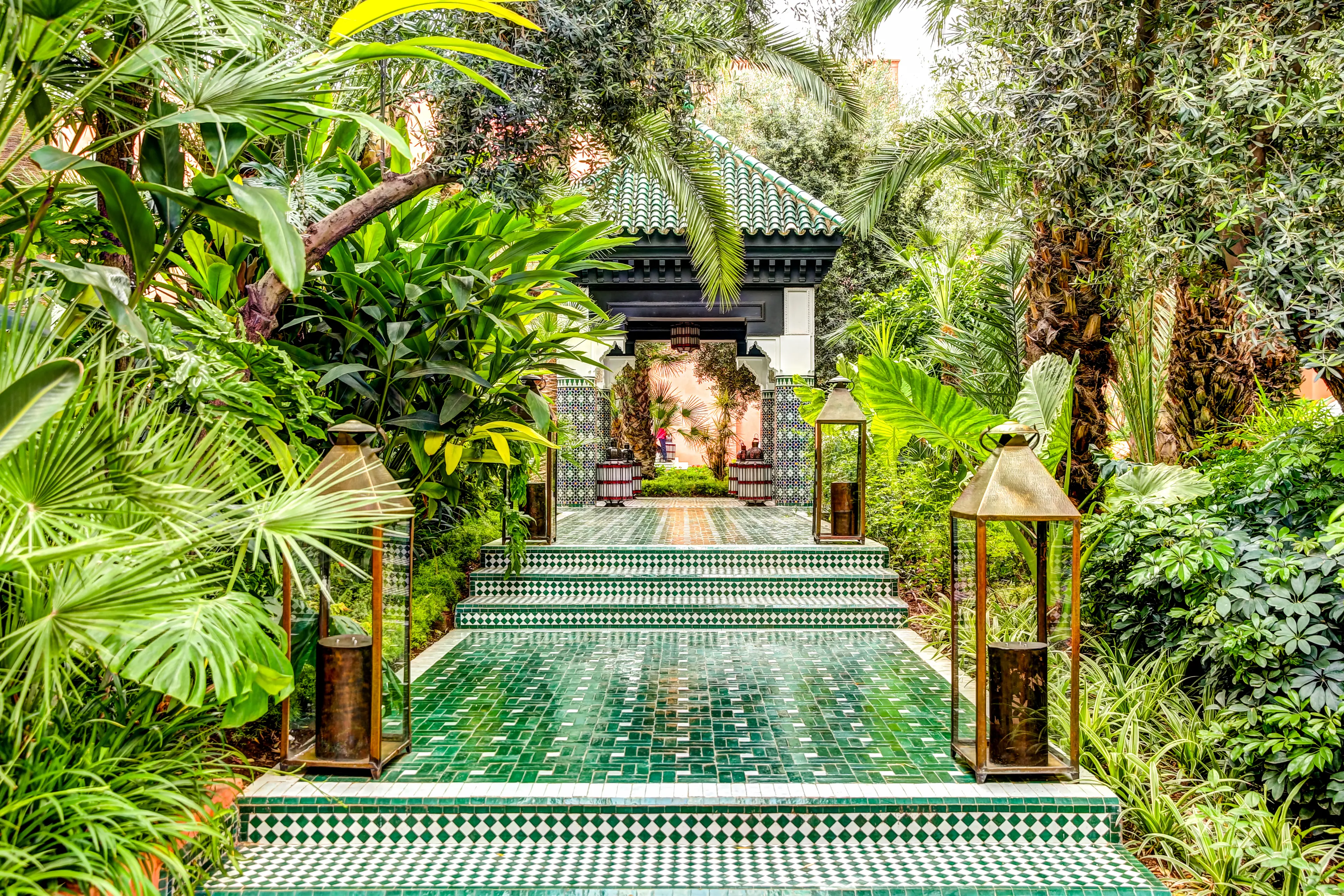1-Day Relaxing and Sightseeing Family Tour in Marrakech
Marrakech, Morocco
1 days

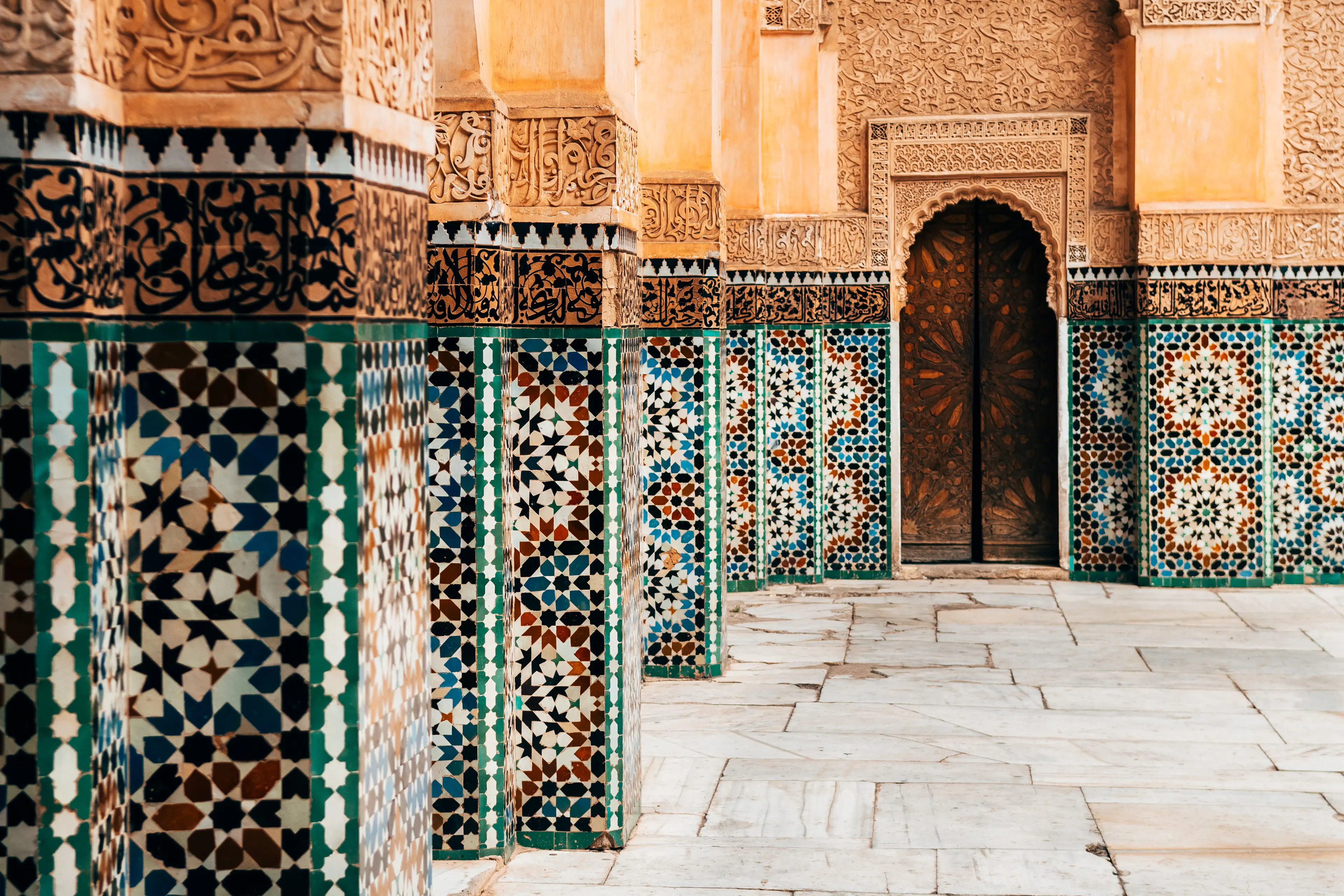
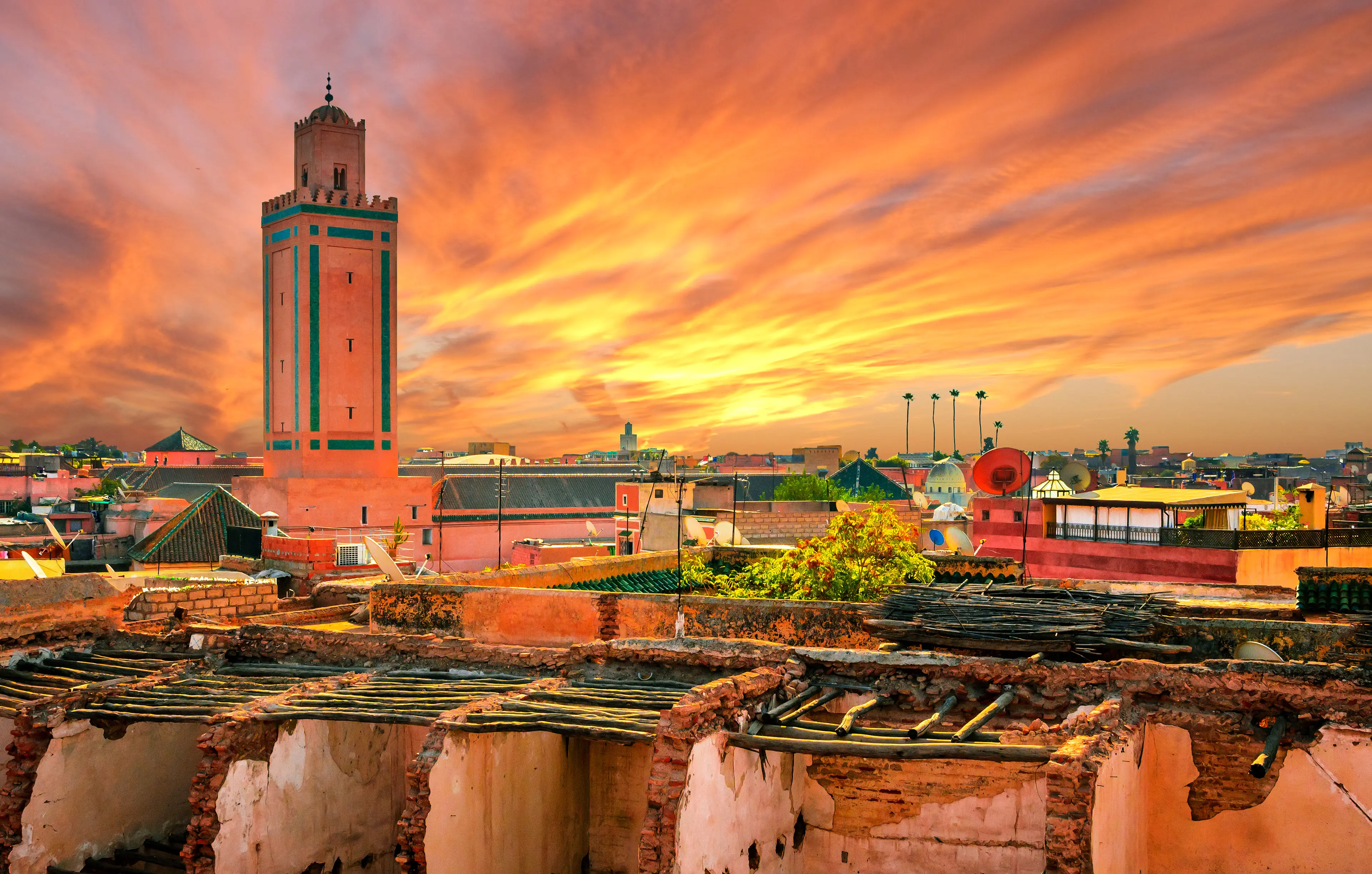
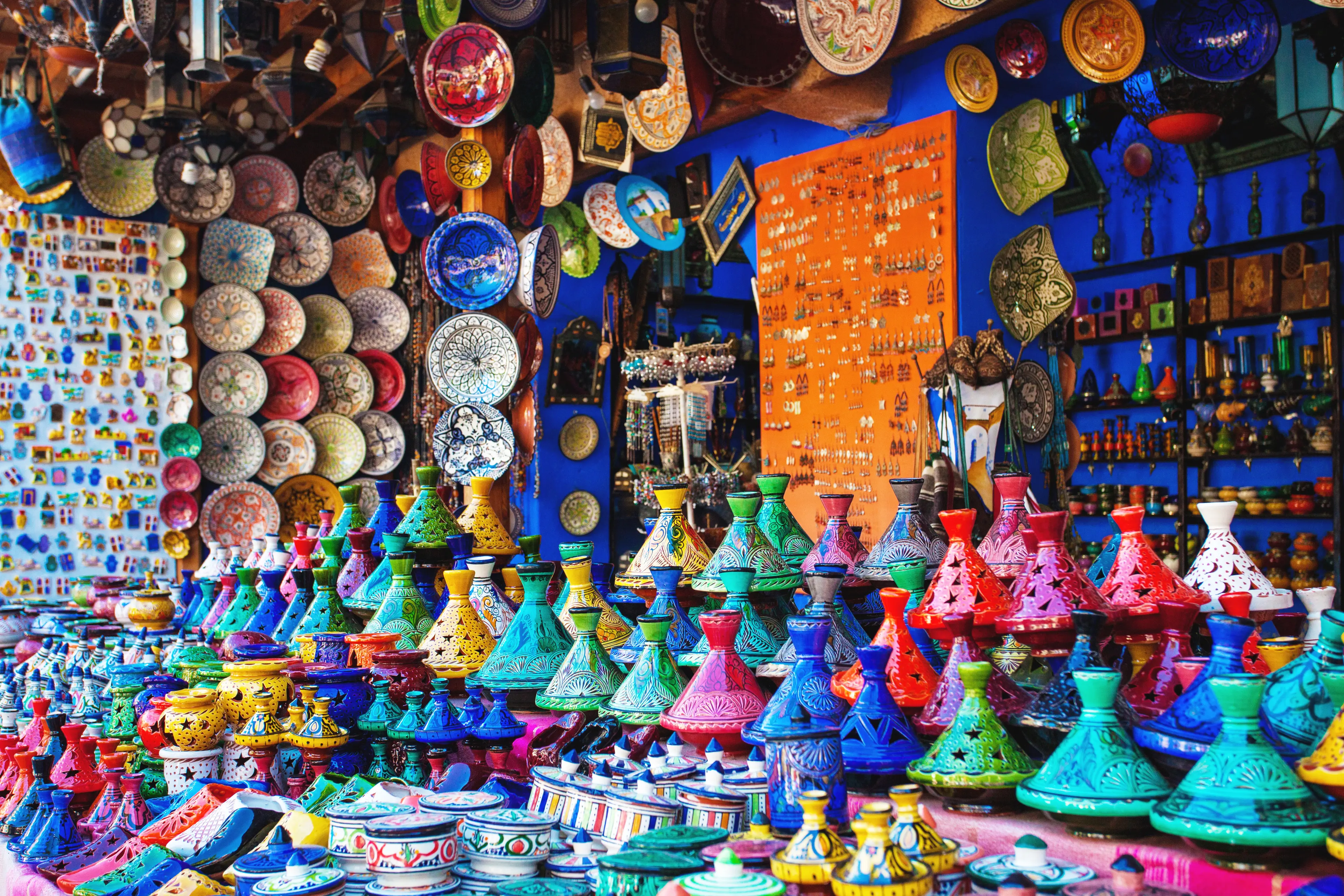
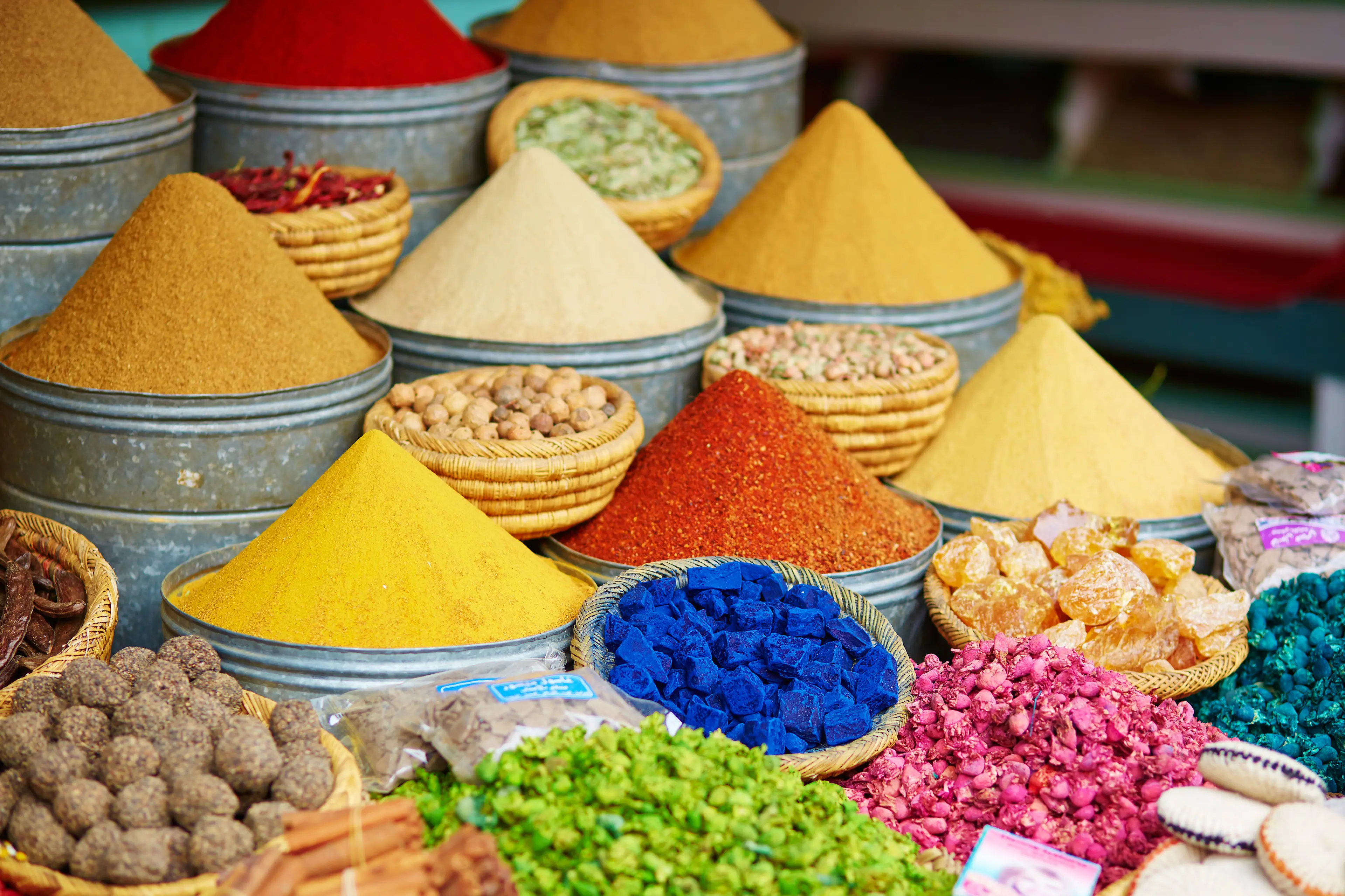
About Marrakech, Morocco
Experience the magic of Marrakech, Morocco, a city brimming with vibrant culture, rich history, and stunning landscapes. Explore the bustling Jemaa el-Fnaa Square, where snake charmers, henna artists, and food vendors create an unforgettable spectacle. Wander through the winding alleys of the Medina, a UNESCO World Heritage site, filled with colorful souks selling traditional crafts, spices, and textiles. Visit the stunning Bahia Palace and the Koutoubia Mosque, showcasing the city's architectural grandeur. Don't miss the Majorelle Garden, a tranquil oasis of exotic plants and fountains. Enjoy traditional Moroccan cuisine, with dishes like tagine and couscous. Marrakech offers a unique blend of ancient traditions and modern comforts, making it a must-visit destination.
1-Day Itinerary
Attractions in Itinerary (7)
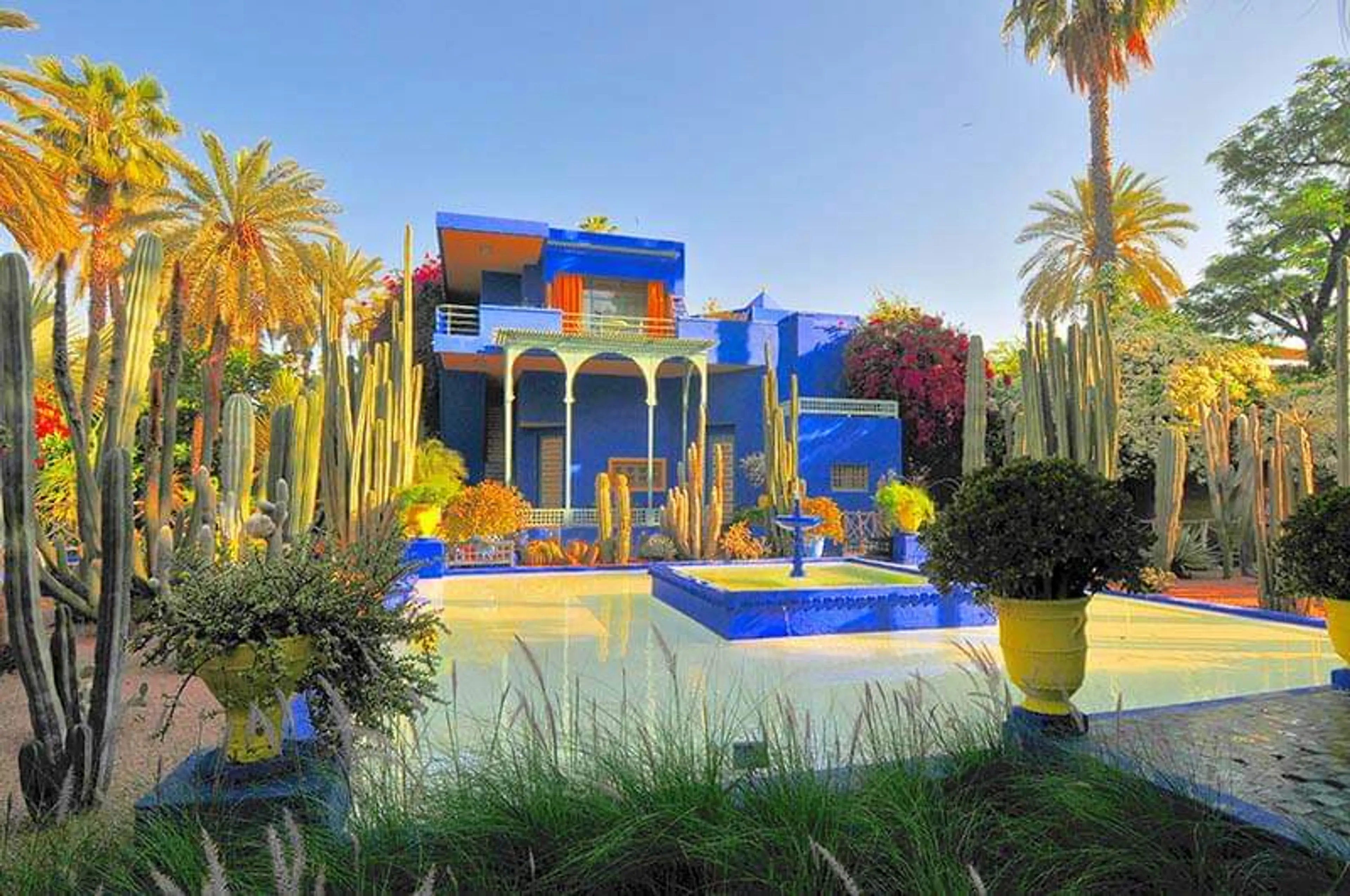
1Jardin Majorelle
A beautiful garden designed by French painter Jacques Majorelle and later owned by fashion designer Yves Saint Laurent. It's a tranquil oasis filled with exotic plants, fountains, and vibrant blue buildings.
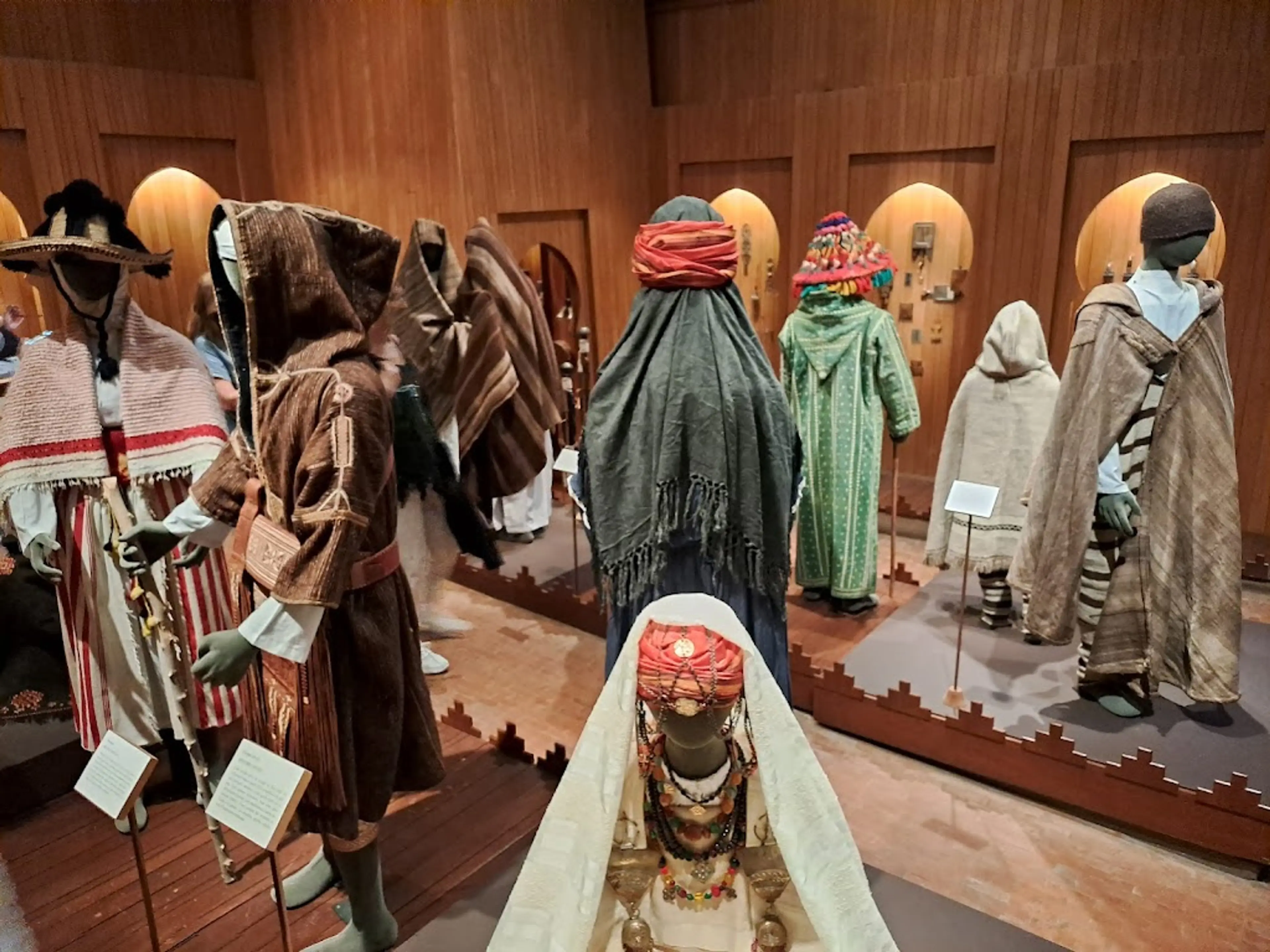
2Berber Museum
The Berber Museum in Marrakech is a cultural institution dedicated to the preservation and promotion of Berber culture. It houses a collection of more than 600 objects from across Morocco, including jewelry, costumes, ceramics, and other artifacts that showcase the richness and diversity of Berber heritage.
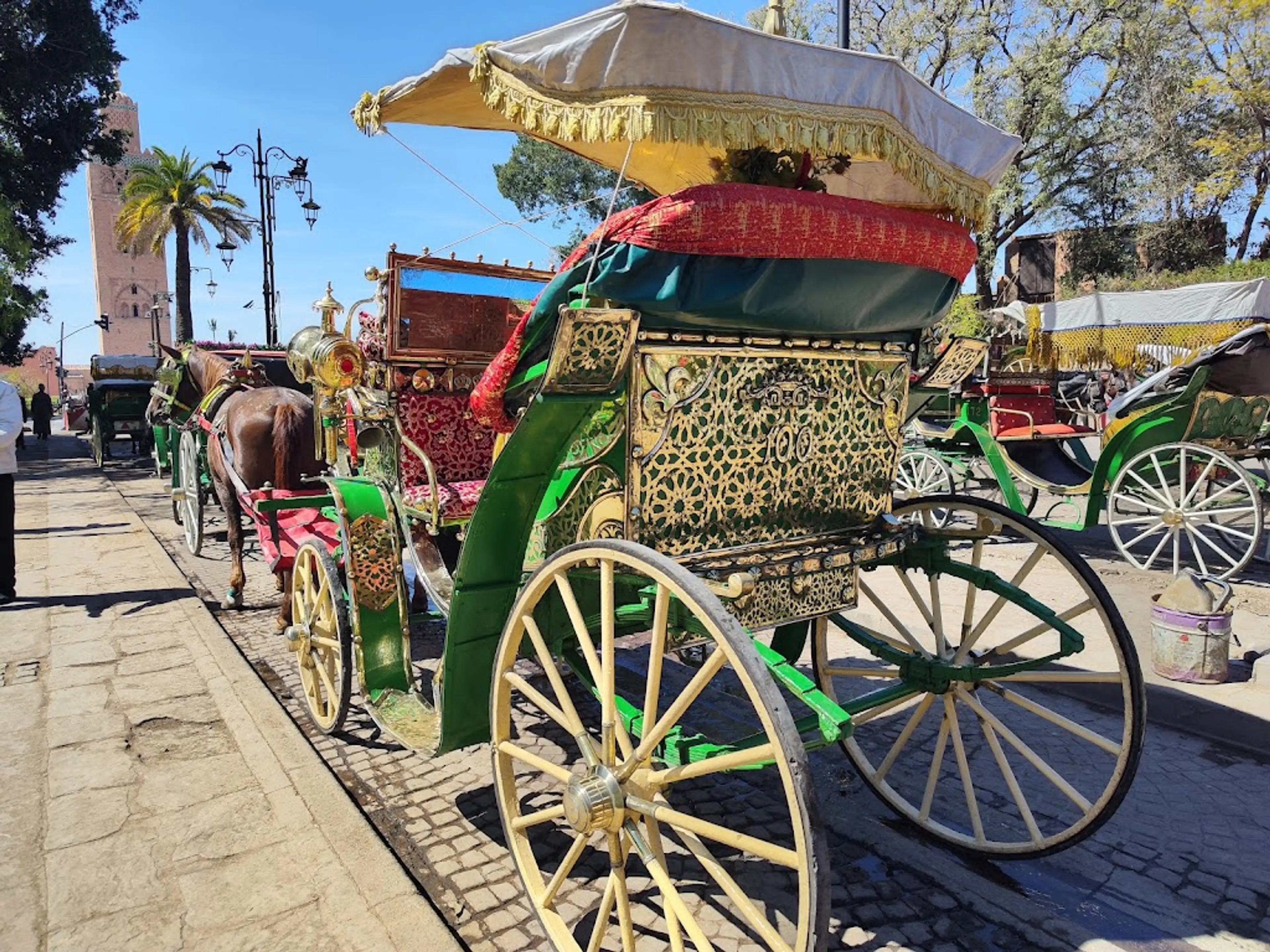
3Medina
The historic district of Marrakech, known for its traditional Moroccan architecture, bustling souks, and rich cultural heritage.
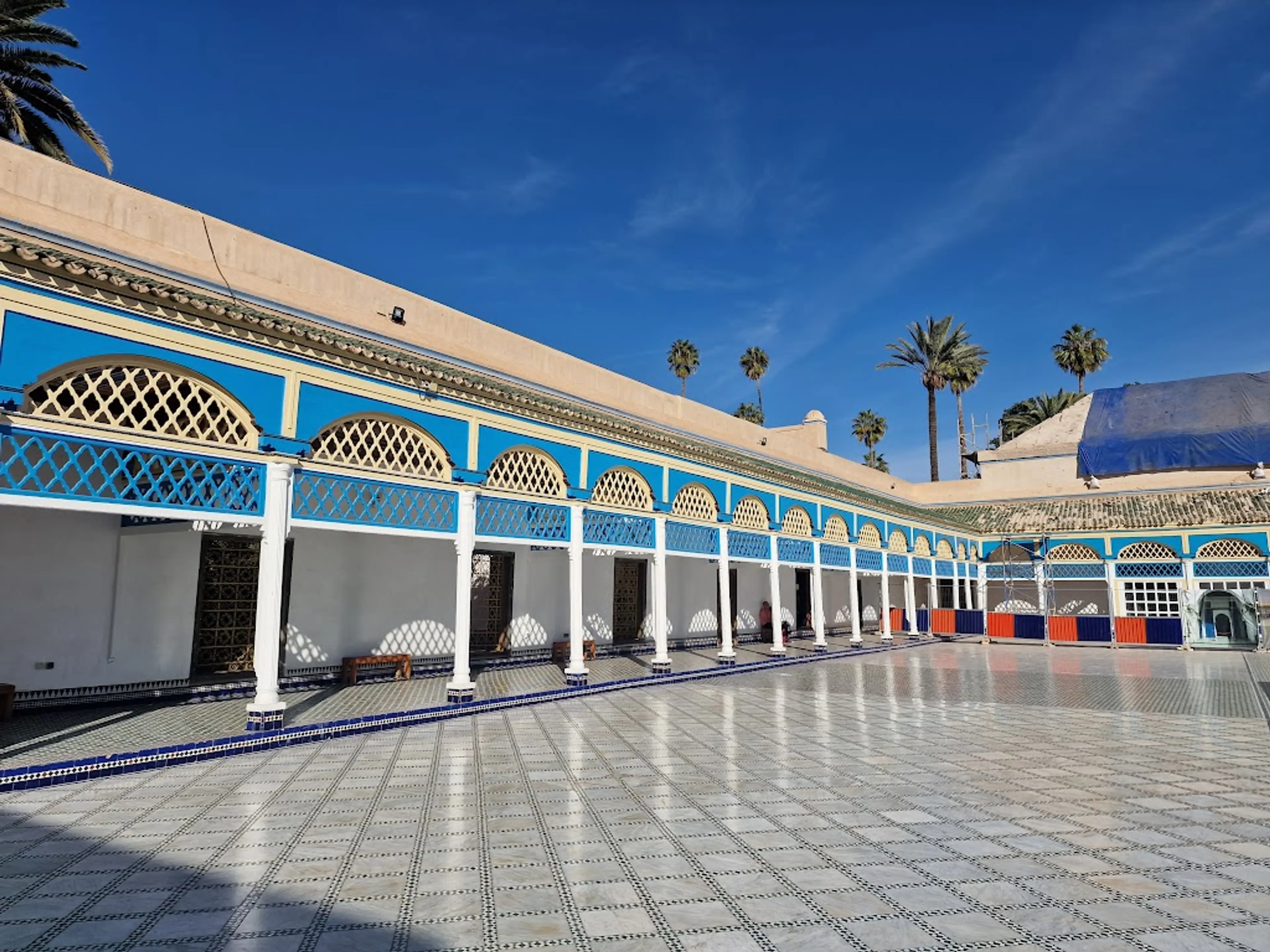
4Bahia Palace
A beautiful 19th-century palace featuring stunning gardens and beautifully decorated rooms. It's one of Marrakech's major tourist attractions.
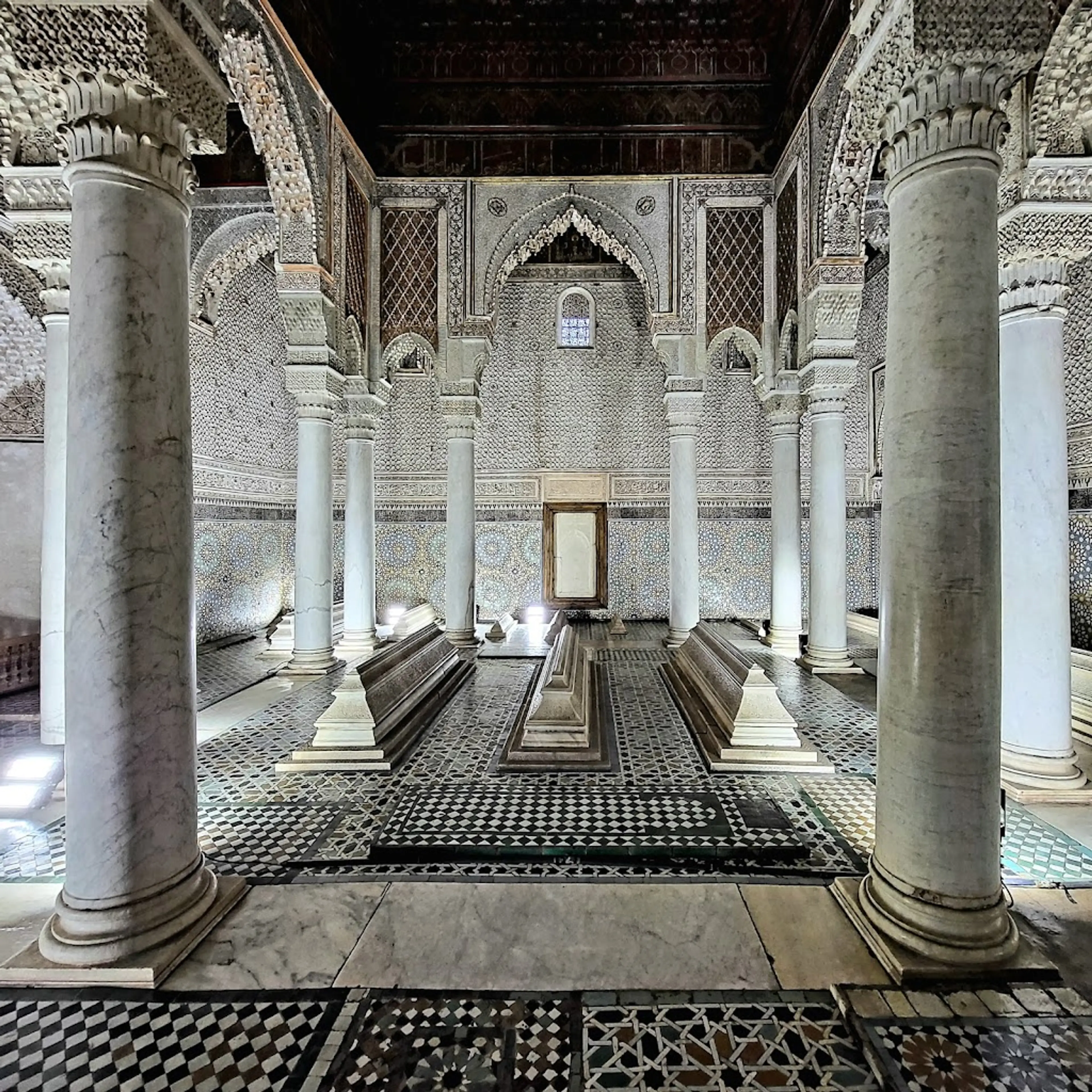
5Saadian Tombs
A historic site featuring the beautifully decorated tombs of the Saadian dynasty. They were rediscovered in 1917 and are now one of Marrakech's most popular tourist attractions.
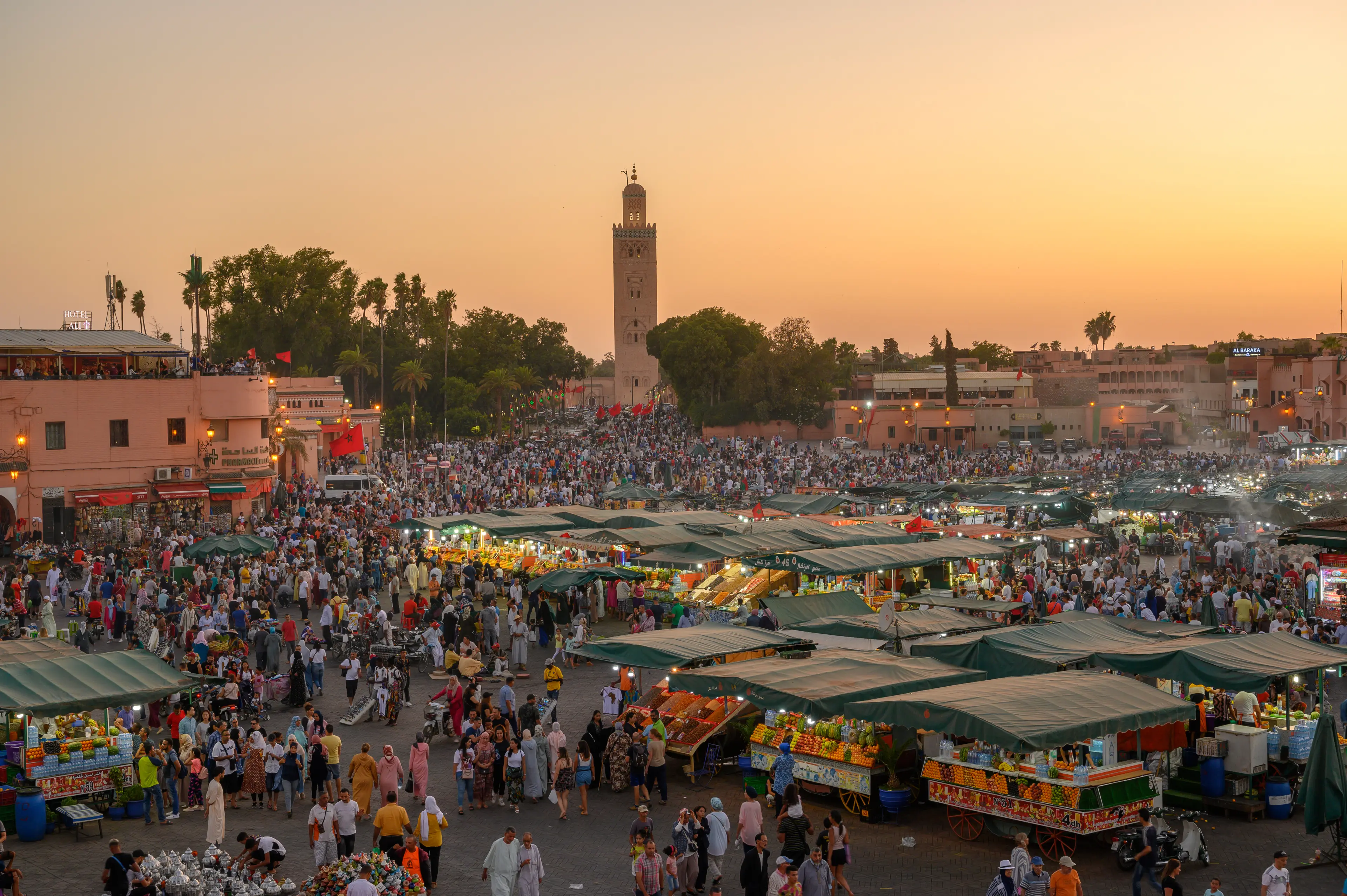
6Jemaa el-Fnaa
A famous square and market place in Marrakech's medina quarter. During the day it's filled with fruit stalls, henna tattoo artists, and snake charmers, while at night it transforms into a bustling food market.
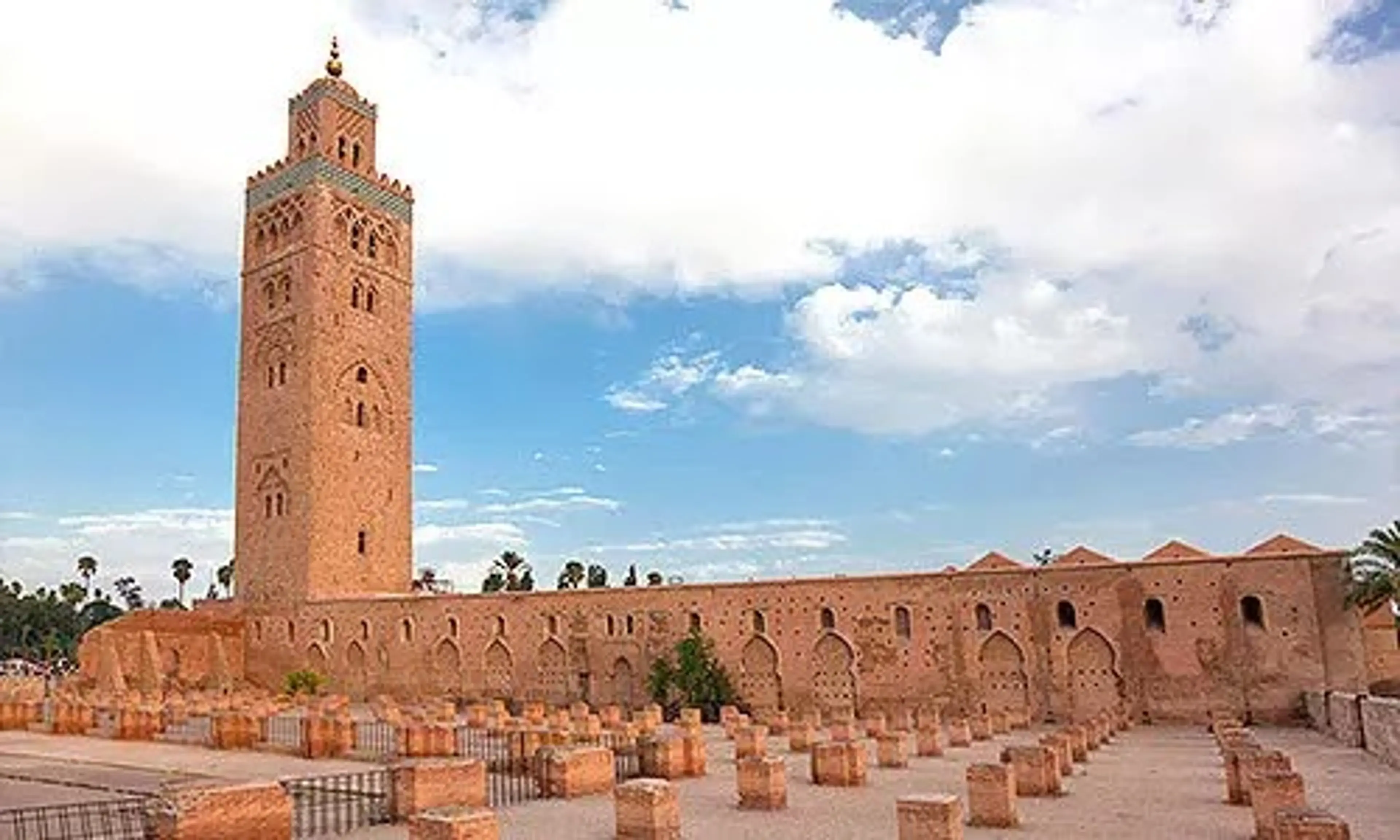
7Koutoubia Mosque
The largest mosque in Marrakech, known for its beautiful minaret that dominates the city skyline. Non-Muslims are not allowed inside, but the exterior and surrounding gardens are worth a visit.
Local Food and Drinks (10)
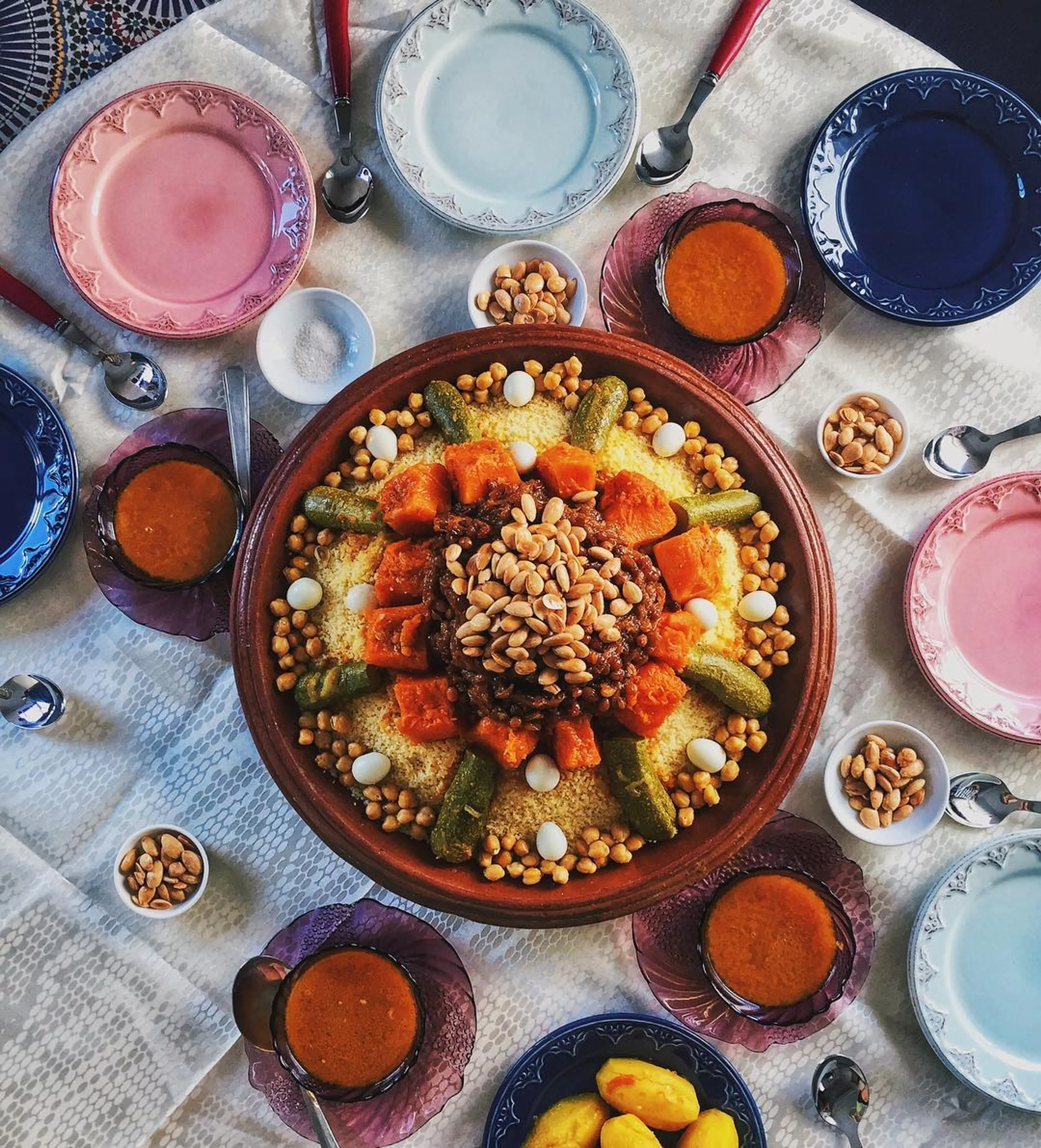
Couscous
A staple food throughout the North African cuisines of Morocco, Algeria, Tunisia, Mauritania, and Libya. It's traditionally served with meat or vegetable stew spooned over it.
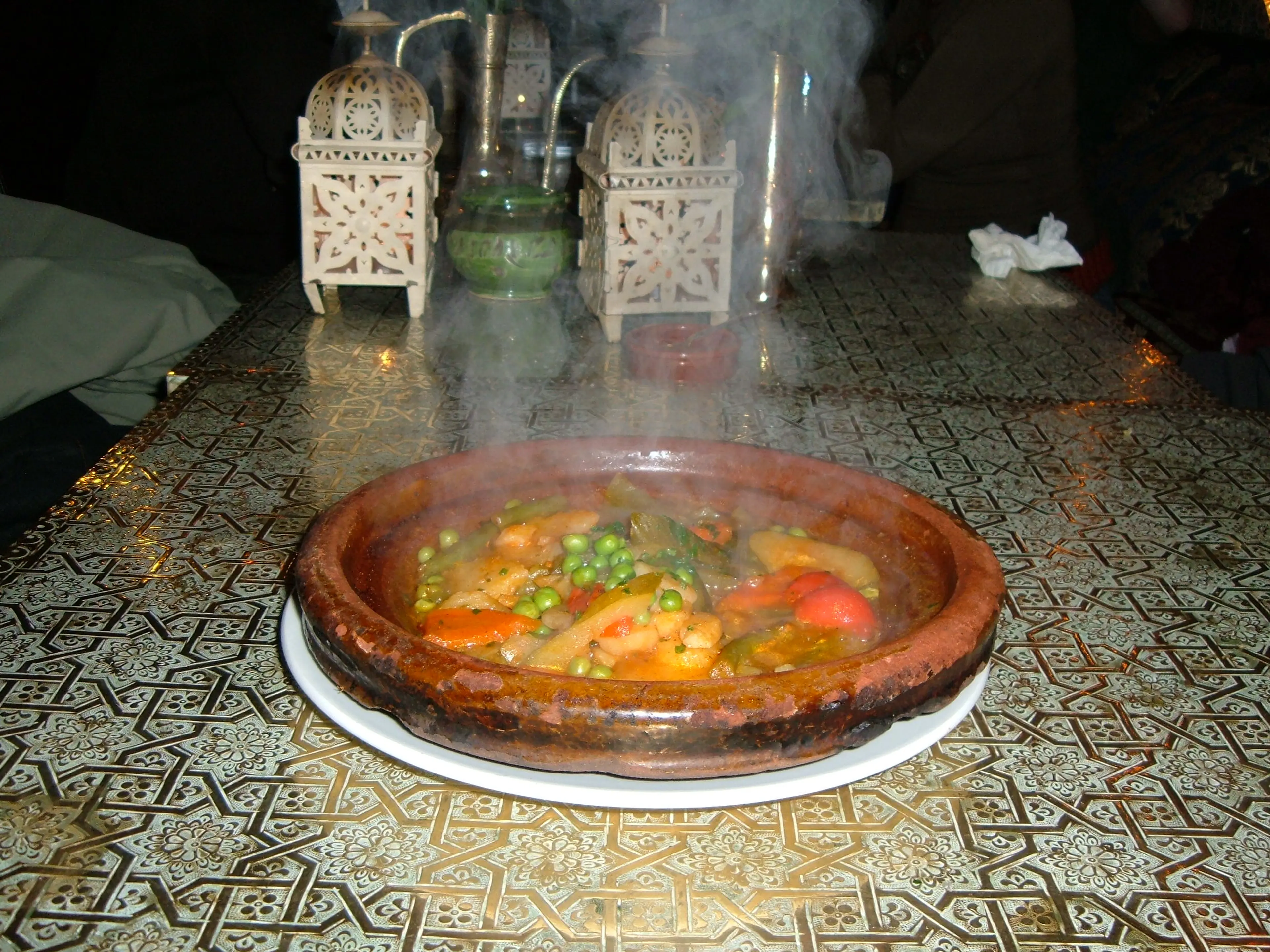
Tajine
A slow-cooked stew braised at low temperatures, resulting in tender meat with aromatic vegetables and sauce. It's named after the traditional clay cooking pot used to cook it.

Pastilla
A traditional Moroccan pie which combines sweet and salty flavours; a combination of crispy layers dough, savory meat slow-cooked in broth and spices, and a crunchy layer of toasted and ground almonds, cinnamon, and sugar.
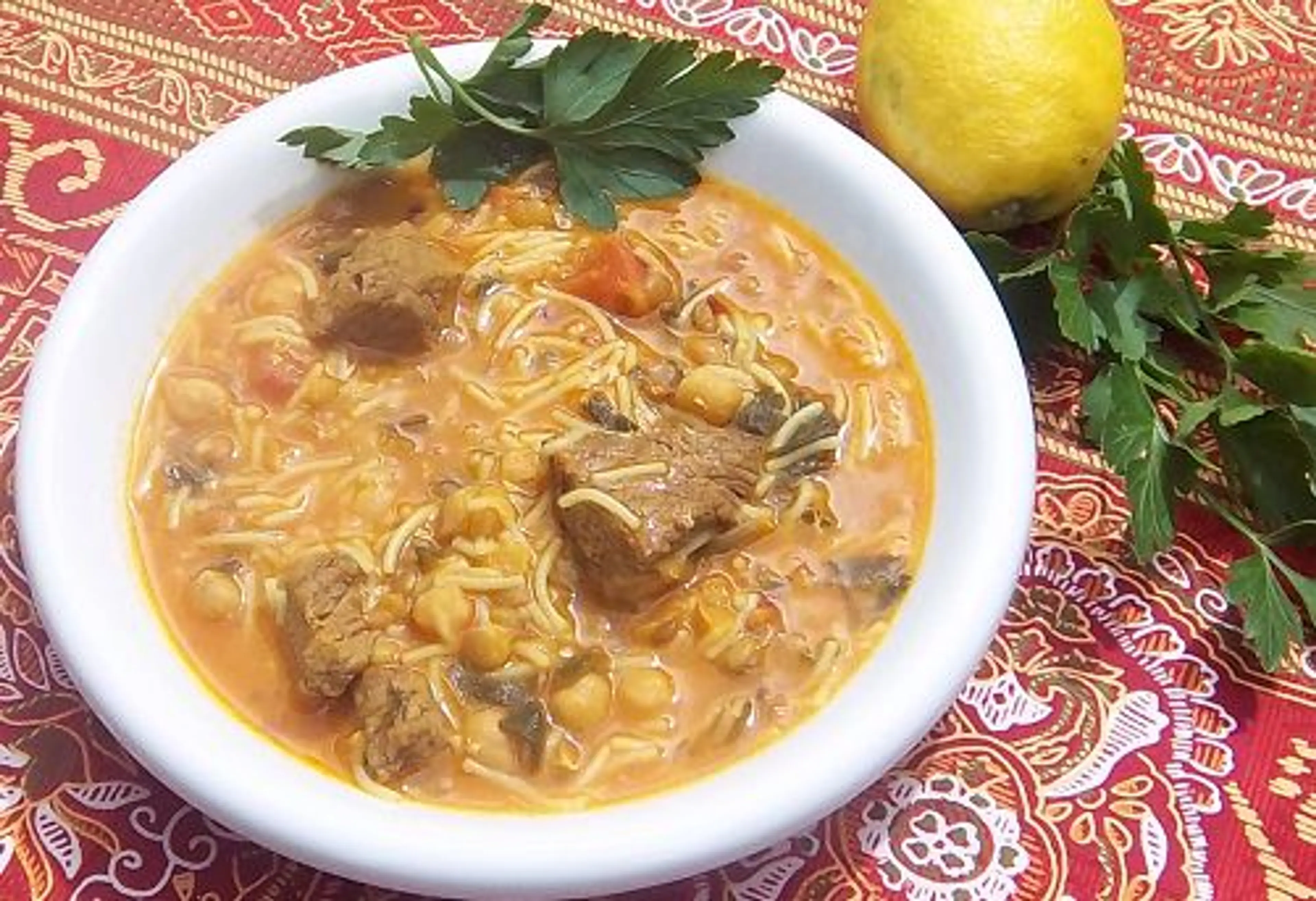
Harira
A traditional Moroccan soup of tomato, lentils, and chickpeas. It is usually eaten during dinner in the holy month of Ramadan to break the fasting day.

Mint Tea
Also known as Moroccan mint tea, it is a green tea with mint leaves. It is a sign of hospitality and friendship and is served throughout the day and at meals.
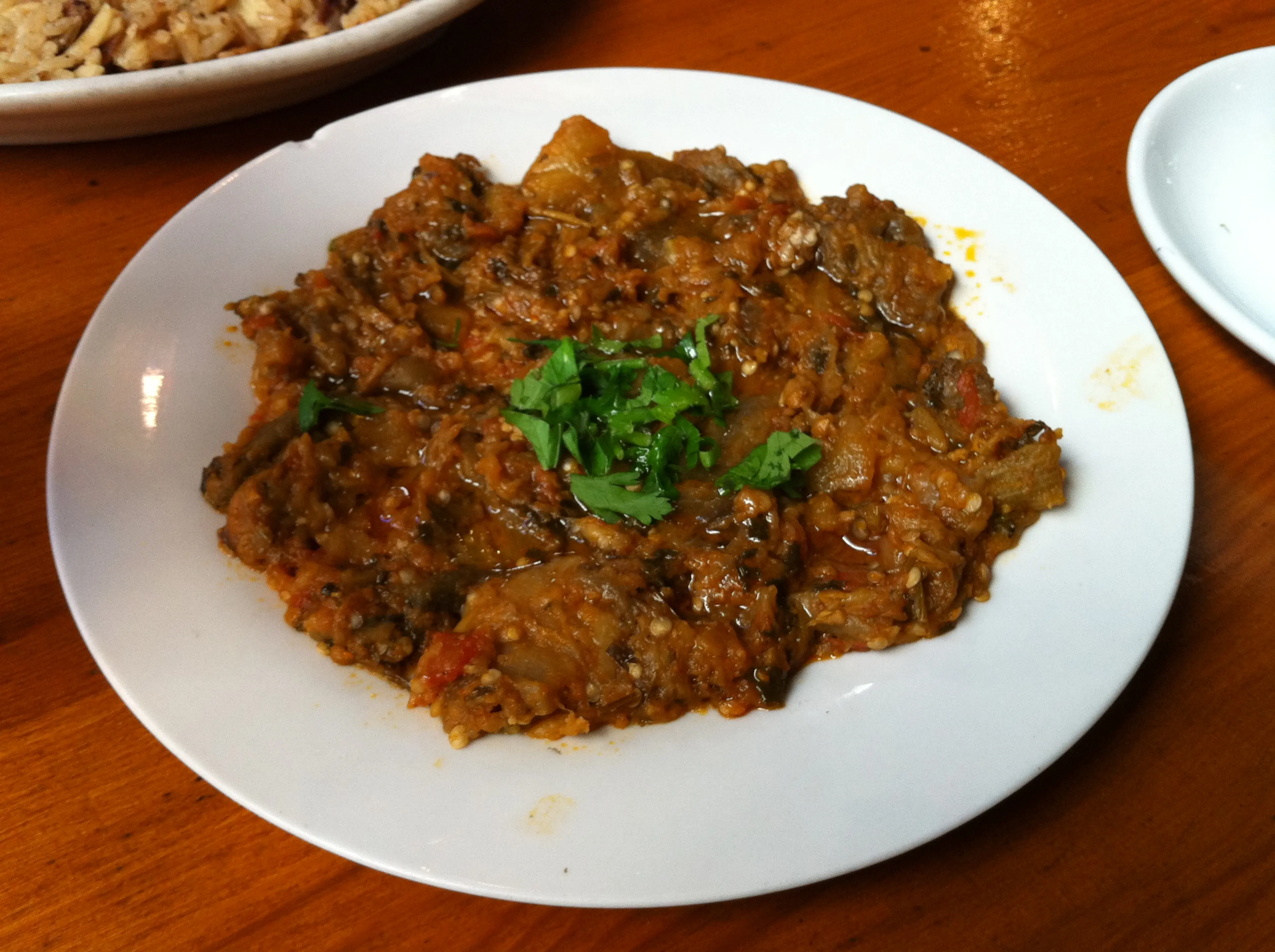
Zaalouk
A traditional Moroccan salad made with eggplant and tomatoes, garlic, olive oil and spices. It is usually served as a side dish and can be eaten with bread.
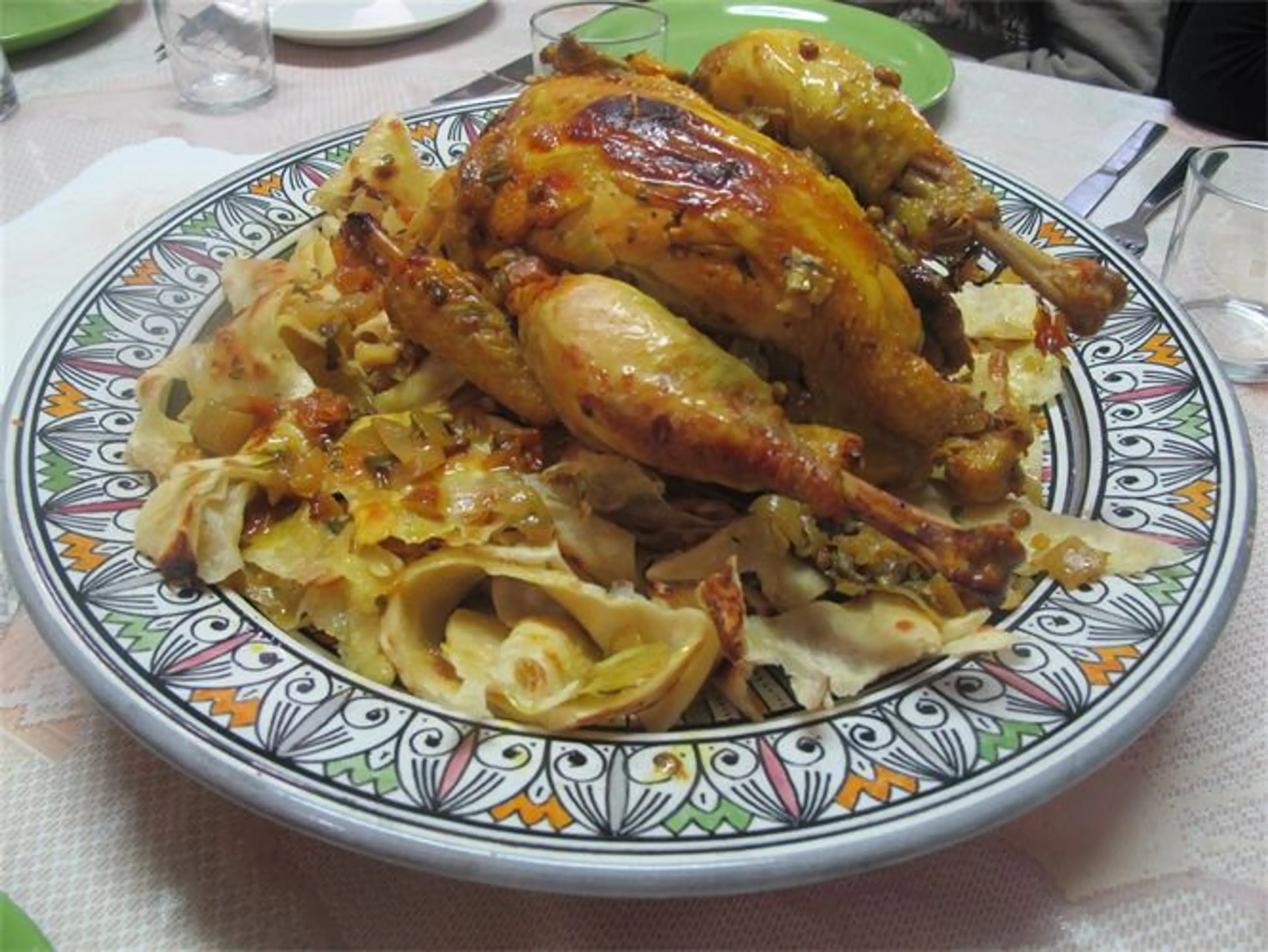
Rfissa
A traditional Moroccan dish served on special occasions. It is made with chicken, lentils, and a special type of bread called msemen or trid, served with a medley of aromatic herbs and spices.
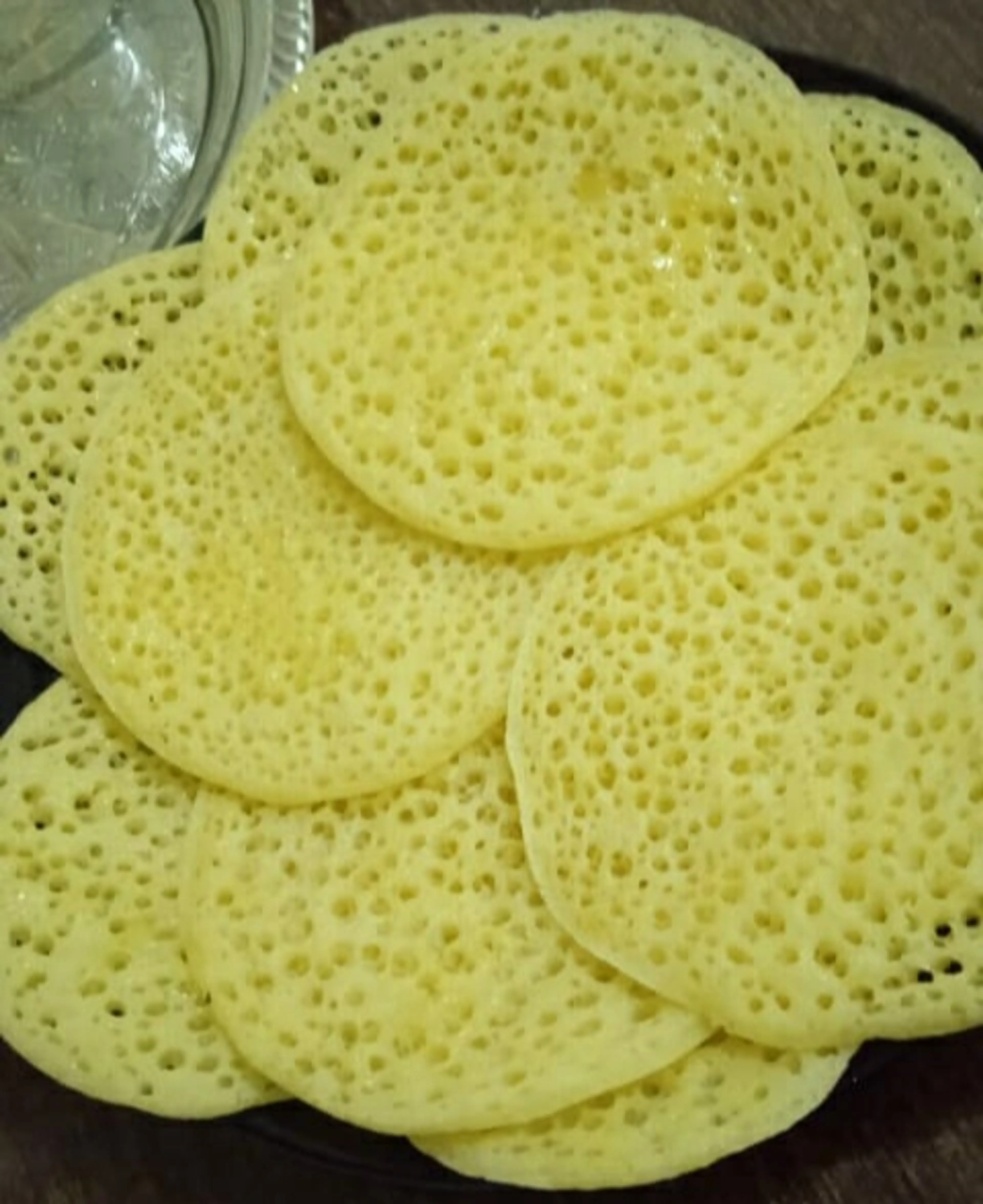
Baghrir
A Moroccan pancake that is known as the 'hundred holes pancake', popularly served during breakfast or as a dessert. It is often served with honey or butter.

Sardines
Morocco is a leading country in sardine production. Sardines are often grilled, stuffed, or made into a tagine.

Maakouda
A traditional Moroccan street food. These are potato cakes that are usually sold in the streets of Morocco. They can be eaten alone as a snack or used as a filling in sandwiches along with harissa, salad, and fried eggplant.
Best time to visit
The best time to visit Marrakech, Morocco is during the spring (March to May) and fall (September to November). During these periods, the weather is warm and pleasant, perfect for exploring the city's vibrant markets, historical sites, and beautiful gardens. The summer months can be extremely hot, while the winter can be quite cool, especially in the evenings. So, spring and fall offer the most comfortable temperatures for sightseeing and other outdoor activities.
How to get around
Walk
Marrakech is a city with a compact and walkable Medina (old city). Walking is the best way to explore the narrow, winding streets and discover hidden gems.
Taxi
Taxis are plentiful in Marrakech. There are two types: petit taxis for short trips within the city, and grand taxis for longer journeys. Always ensure the meter is running or agree on a price before the trip begins.
Bus
The city has a comprehensive bus network that covers most areas of interest. Buses are a cheap and efficient way to get around, though they can be crowded at peak times.
Bicycle
Bicycles are a popular mode of transport in Marrakech. Many hotels and guesthouses offer bike rentals, and there are also several bike rental shops in the city.
Carriage
Horse-drawn carriages, known as caleches, are a traditional and romantic way to see the city. They can be hired for short trips or longer tours.
Ridesharing
Ridesharing services like Uber are available in Marrakech. This can be a convenient and cost-effective way to get around, especially if you're not comfortable haggling over taxi fares.
Scooter
Renting a scooter can be a fun and efficient way to get around Marrakech. However, traffic can be chaotic, so this option is best for experienced riders.
Private Driver
Hiring a private driver can be a convenient way to get around, especially for longer trips outside the city. Many hotels can arrange this service for their guests.
Important information
Currencyد.م. MAD
Time zoneUTC 0
Driving sideRight
Emergency phoneAmbulance: 15; Fire: 15; Police: 19
Drinking waterOpt for bottled water
Power sockets
Voltage220 V
Things to know about Marrakech, Morocco as a first time visitor
1
Marrakech is a bustling city with a rich history and vibrant culture.
2
The official language is Arabic, but French is also widely spoken. English is understood in many tourist areas.
3
The local currency is the Moroccan Dirham (MAD). Credit cards are accepted in many places but carrying some cash is advisable for smaller establishments and markets.
4
Marrakech can be very hot in the summer, with temperatures often exceeding 100°F (38°C), and mild in the winter, with temperatures ranging from 50°F to 70°F (10°C to 21°C).
5
Traditional Moroccan cuisine is a must-try, with dishes like couscous, tagine, and mint tea being local favorites.
6
Bargaining is a common practice in the markets, known as souks. Don't be afraid to negotiate prices.
7
It's important to dress modestly out of respect for the local culture. Women in particular should avoid revealing clothing.
8
Tipping is customary in Morocco. It's typical to tip around 10% in restaurants and a small amount to porters, guides, and drivers.
9
It's advisable to drink bottled water as tap water may not be safe for consumption.
10
Public displays of affection are frowned upon, especially between unmarried couples.
11
It's recommended to have travel insurance that covers medical expenses, as healthcare can be expensive.
12
Morocco operates on Western European Time (GMT+1).
13
The electrical voltage in Morocco is 220V, and the plug type is C or E.
14
It's advisable to respect local customs and traditions, especially during the holy month of Ramadan when eating, drinking, and smoking in public during daylight hours is frowned upon.
15
Taxis are a common mode of transport, but make sure to agree on a price before the journey as not all taxis have meters.
16
Avoid taking photographs of people without their permission, particularly in the more conservative areas of the city.
17
It's recommended to keep a copy of your passport and important documents in case of loss or theft.
18
Public Wi-Fi is available in many areas, but it's advisable to use a VPN for security reasons.
19
The emergency number in Morocco is 112.
20
It's advisable to check the latest travel advisories before your trip.
Basic Arabic to know as a first time visitor
English phrase | Native phrase | Pronunciation | When to use it |
|---|---|---|---|
Hello | Salam | Sah-lam | Greeting someone |
Goodbye | Bslama | Buh-sla-ma | Leaving or saying goodbye |
Please | Afak | Ah-fak | Making a request |
Thank you | Shukran | Shook-ran | Expressing gratitude |
Yes | Naam | Nahm | Agreeing or confirming |
No | La | Lah | Disagreeing or denying |
Excuse me | SmeH liya | SmeH lee-ya | Getting attention or apologizing |
I don't understand | Ma fhemtch | Ma fehmtch | When you don't understand what was said |
Do you speak English? | Wach katkalem l'anglais? | Wash kat-kah-lem l'ang-lay? | Trying to find someone who speaks English |
Help | Musaaeda | Moo-sa-eh-da | In case of emergency |
Bathroom | Hammam | Ha-mam | Looking for a restroom |
Food | Taam | Ta-am | When looking for something to eat |
Water | Maa | Ma-ah | When you want to drink water |
Hotel | Fondok | Fon-dok | When looking for a place to stay |
Taxi | Taxi | Taxi | When you need a ride |
How much? | Bshhal? | Besh-hal? | When you want to know the price of something |
I'm lost | Rah tayeh | Rah tay-eh | When you can't find your way |
Where is...? | Fen...? | Fen? | When you're looking for something |
Sorry | SmeH liya | SmeH lee-ya | Apologizing |
Can I have...? | Mumkin...? | Moom-kin? | When you want to request something |
Packing List
Clothing
Lightweight clothing
Comfortable walking shoes
Sunglasses
Hat for sun protection
Scarf for covering shoulders in religious places
Swimwear (if your hotel has a pool)
Light jacket or sweater for cooler evenings
Toiletries
Travel-size shampoo and conditioner
Travel-size body wash
Toothbrush and toothpaste
Deodorant
Sunscreen
Hand sanitizer
Travel-size tissues
Prescription medications (if applicable)
Travel documents and essentials
Passport
Driver's license or other form of ID
Credit and debit cards
Cash in local currency
Travel insurance documents
Hotel reservation confirmation
Emergency contact information
Electronics and gadgets
Smartphone
Charger for smartphone
Power bank for charging devices on the go
Headphones
Camera (if you don't use your phone for pictures)
Charger for camera
Miscellaneous items
Travel guidebook for Marrakech
Travel pillow for the flight
Snacks for the flight
Reusable water bottle
Travel-size first aid kit
Travel-size laundry detergent
Travel-size umbrella or rain poncho
Weather Conditions
When planning a trip to Marrakech, Morocco, it's important to consider the city's climate to ensure you pack appropriately and plan activities that align with the weather conditions. Marrakech experiences a semi-arid climate, with hot summers and mild winters. The summer months, from June to September, can be extremely hot, with temperatures often exceeding 100°F (38°C). If you're not a fan of intense heat, it might be best to avoid visiting during this period. However, if you do decide to visit in the summer, remember to stay hydrated and protect yourself from the sun with hats, sunglasses, and sunscreen. The winter months, from December to February, are much milder, with daytime temperatures typically ranging from 60°F to 70°F (15°C to 21°C). Nights can be quite chilly, dropping to around 45°F (7°C), so it's advisable to pack some warm clothing. The shoulder seasons, spring (March to May) and autumn (October and November), offer more comfortable temperatures, typically between 70°F and 85°F (21°C and 29°C). These periods also see less tourist crowds, making them ideal times to visit. Rainfall in Marrakech is relatively low, but most of it falls in the winter months. It's always a good idea to check the forecast before your trip and pack a light rain jacket or umbrella just in case. Regardless of when you visit, remember that the desert can cool down significantly at night, so it's always a good idea to have a jacket or sweater on hand. Also, if you're planning on visiting the Atlas Mountains, be prepared for cooler temperatures and potentially even snow during the winter months. In conclusion, Marrakeck offers a diverse climate that can cater to a variety of preferences. Whether you prefer the heat of the summer or the milder winter temperatures, just remember to pack accordingly and stay prepared for the occasional rain shower or chilly desert night.
| Month | Hi / Lo (°C) | Weather Overview |
|---|---|---|
January | 18° / 6° | January is the coldest month in Marrakech, but it's still relatively mild with little rainfall, making it a good time for sightseeing. |
February | 20° / 8° | February sees a slight increase in temperature, with sunny days perfect for exploring the city's many attractions. |
March | 23° / 10° | March brings the start of spring, with warmer temperatures and blooming flowers, ideal for outdoor activities. |
April | 25° / 12° | April is a pleasant month with moderate temperatures, perfect for enjoying Marrakech's gardens and parks. |
May | 29° / 15° | May is the start of the hot season, with long sunny days, great for lounging by the pool or visiting the nearby Atlas Mountains. |
June | 32° / 18° | June is quite hot, but it's a good time to visit if you want to experience Marrakech's vibrant nightlife, as the evenings are warm. |
July | 36° / 20° | July is the hottest month, with temperatures often exceeding 35°C, so it's best to plan indoor activities during the day. |
August | 36° / 20° | August is equally hot, with little rainfall, making it a great time for a desert adventure or a visit to the beach. |
September | 32° / 18° | September sees a slight drop in temperature, making it a good time to visit Marrakech's historical sites and markets. |
October | 28° / 15° | October is a comfortable month, with cooler temperatures and less crowds, ideal for exploring the city at a leisurely pace. |
November | 22° / 10° | November is a mild month, with fewer tourists and lower prices, making it a great time to visit for budget travelers. |
December | 20° / 8° | December is a cool month, with sunny days and chilly nights, perfect for enjoying Marrakech's festive atmosphere. |
Did you know?
Places near by Marrakech, Morocco
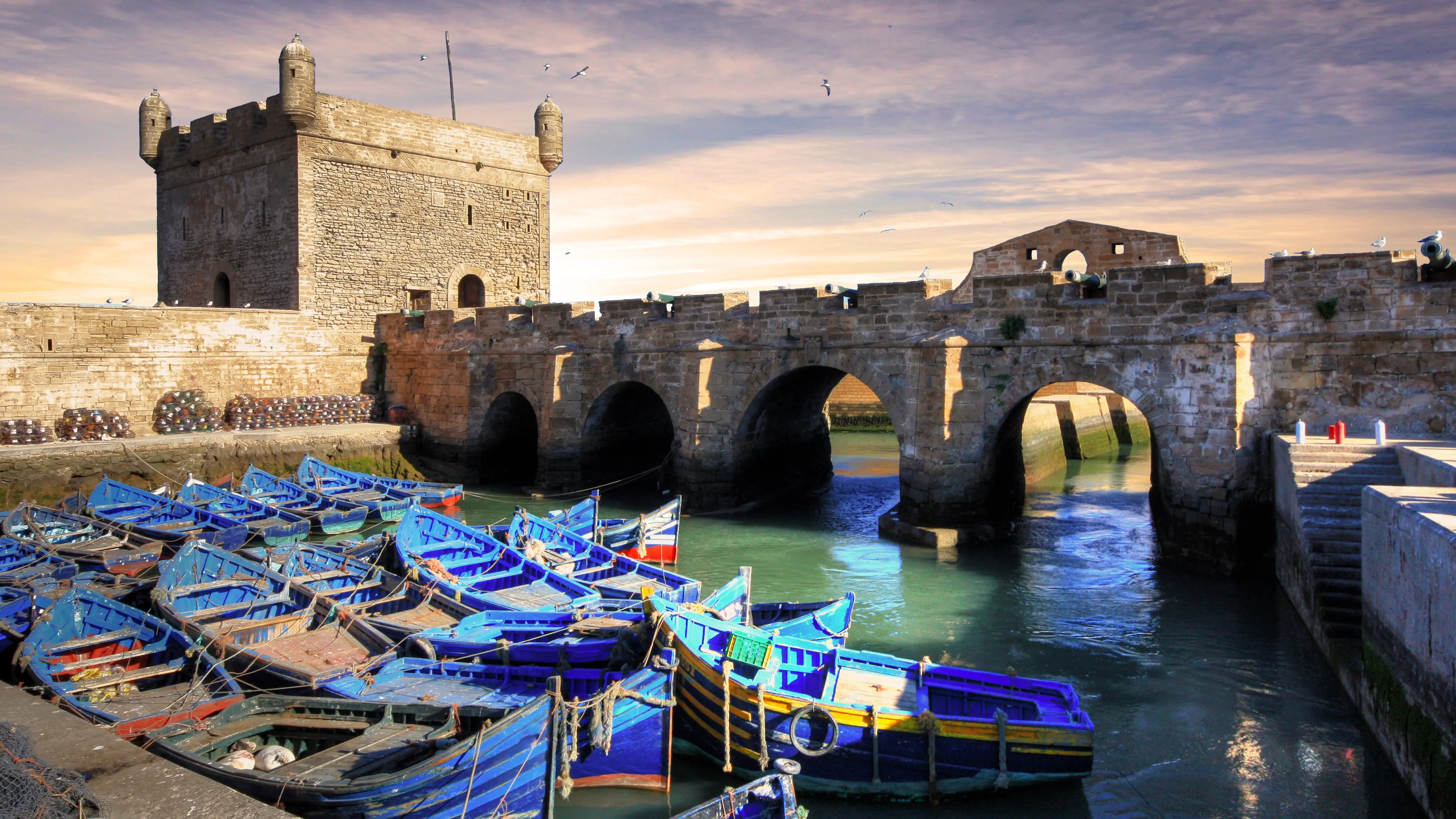
Essaouira
A beautiful coastal town known for its Portuguese architecture, fresh seafood, and a vibrant arts scene.
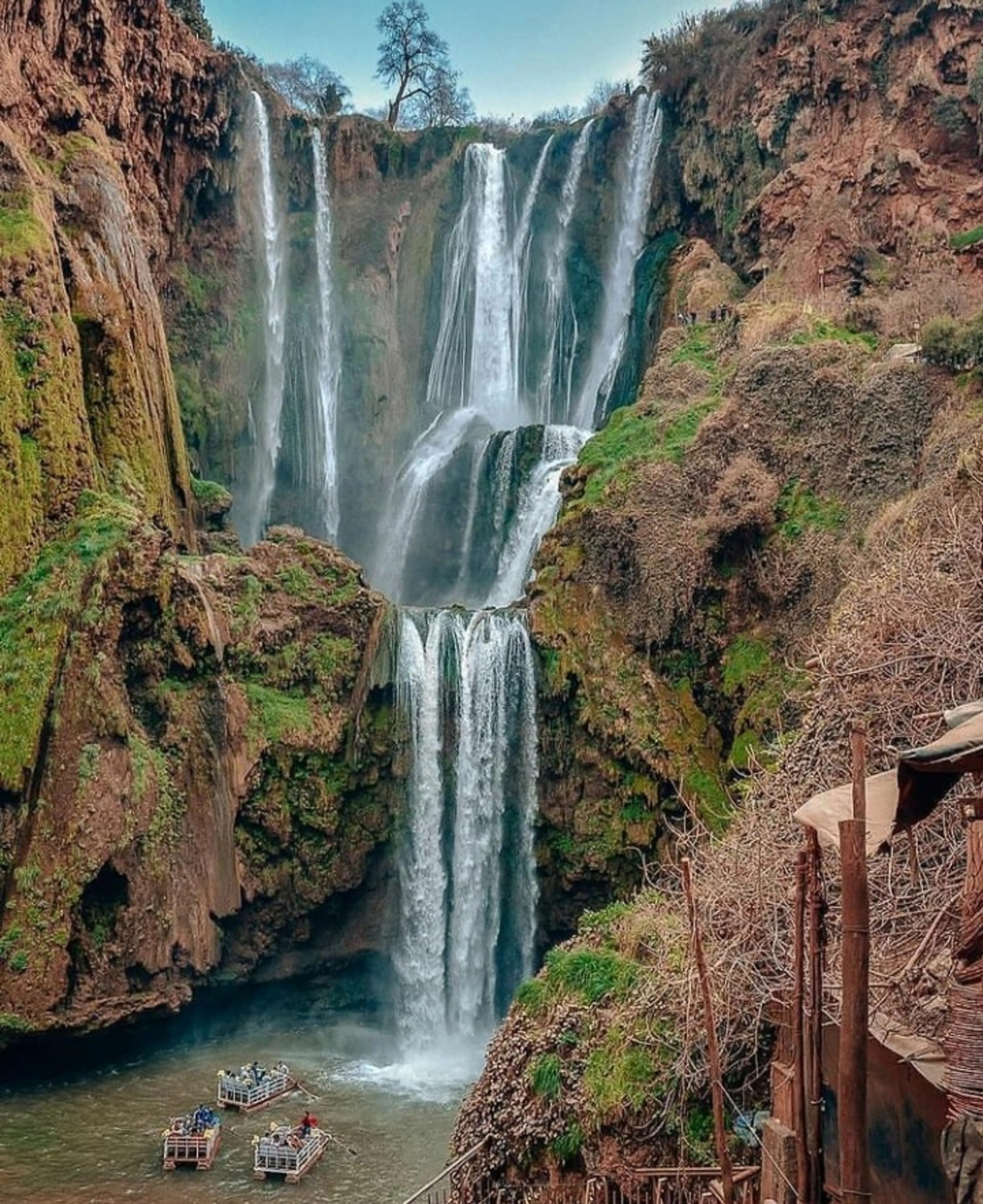
Ouzoud Waterfalls
One of the most stunning natural sights in Morocco, these waterfalls are surrounded by lush greenery and often have rainbows.
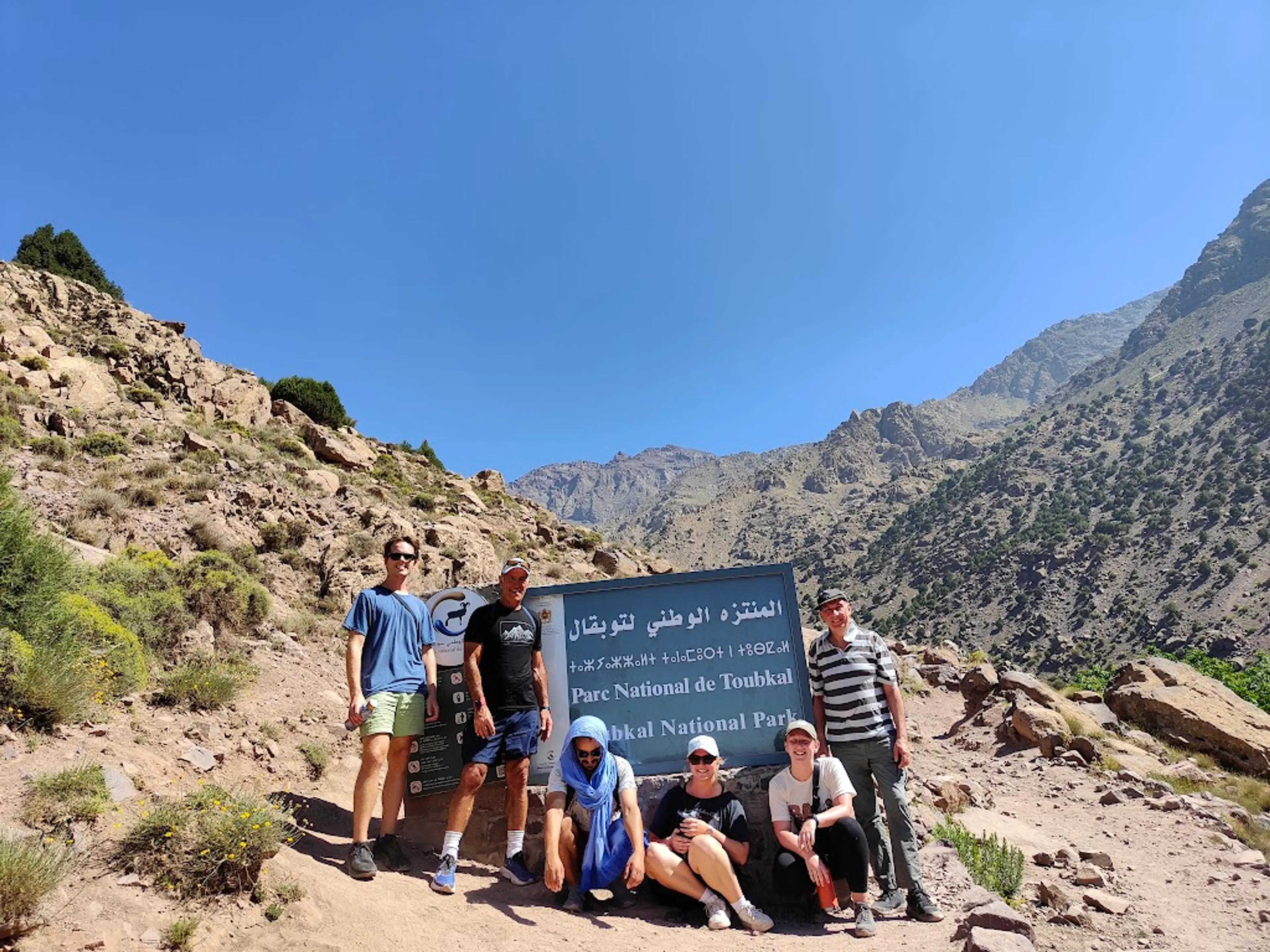
Atlas Mountains
A mountain range across a northern stretch of Africa extending about 2,500 km through Morocco, Algeria, and Tunisia.

Agadir
A major city on Morocco’s coast famed for its beaches and seaside promenade.
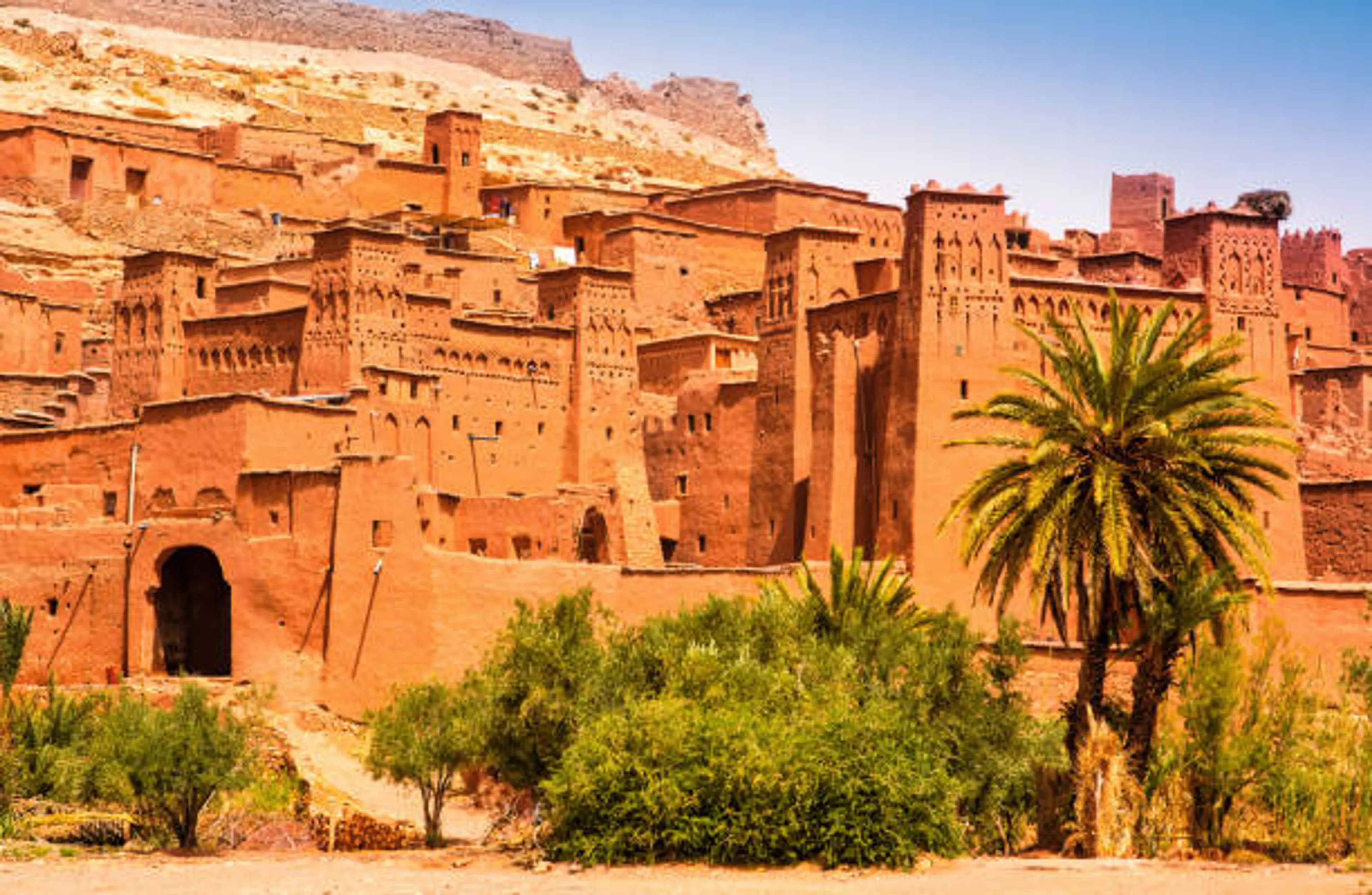
Ait Benhaddou
A fortified village along the former caravan route between the Sahara and Marrakech, it's a UNESCO World Heritage Site.
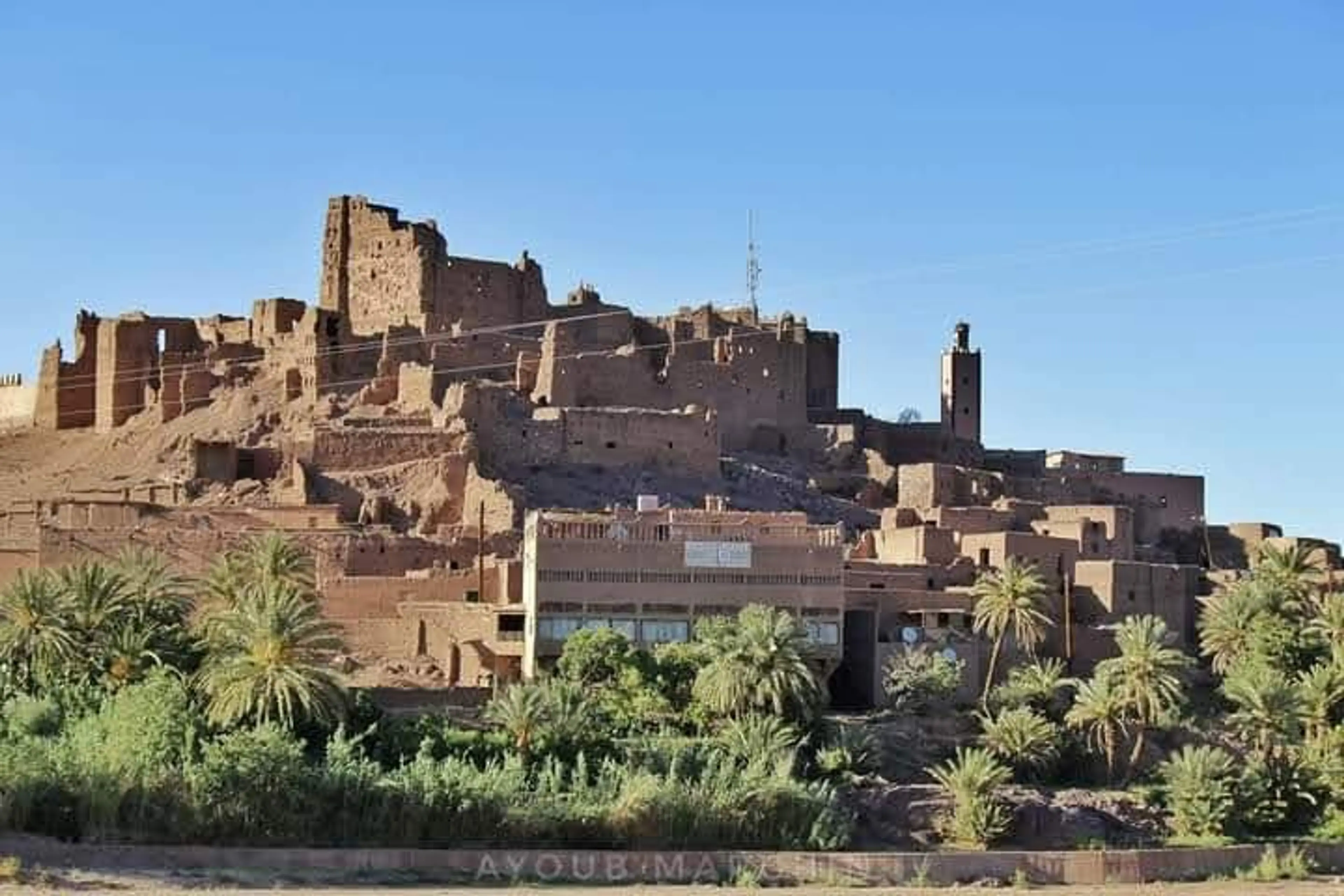
Ouarzazate
Known as the 'Door of the Desert', it's a city south of Morocco's High Atlas mountains, known for the striking Kasbah Taourirt.
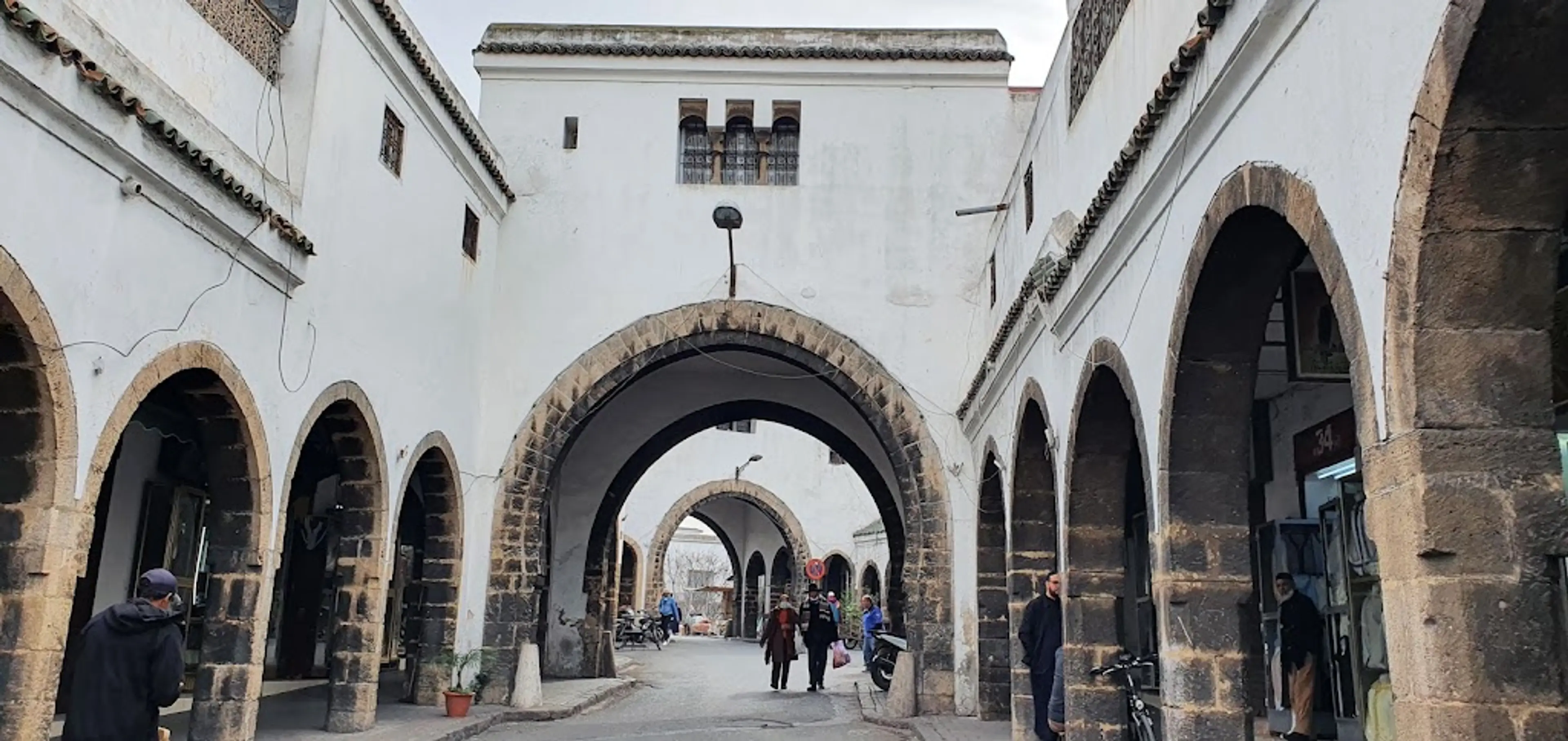
Casablanca
Morocco's largest city and its economic hub, known for its modern architecture and the stunning Hassan II Mosque.
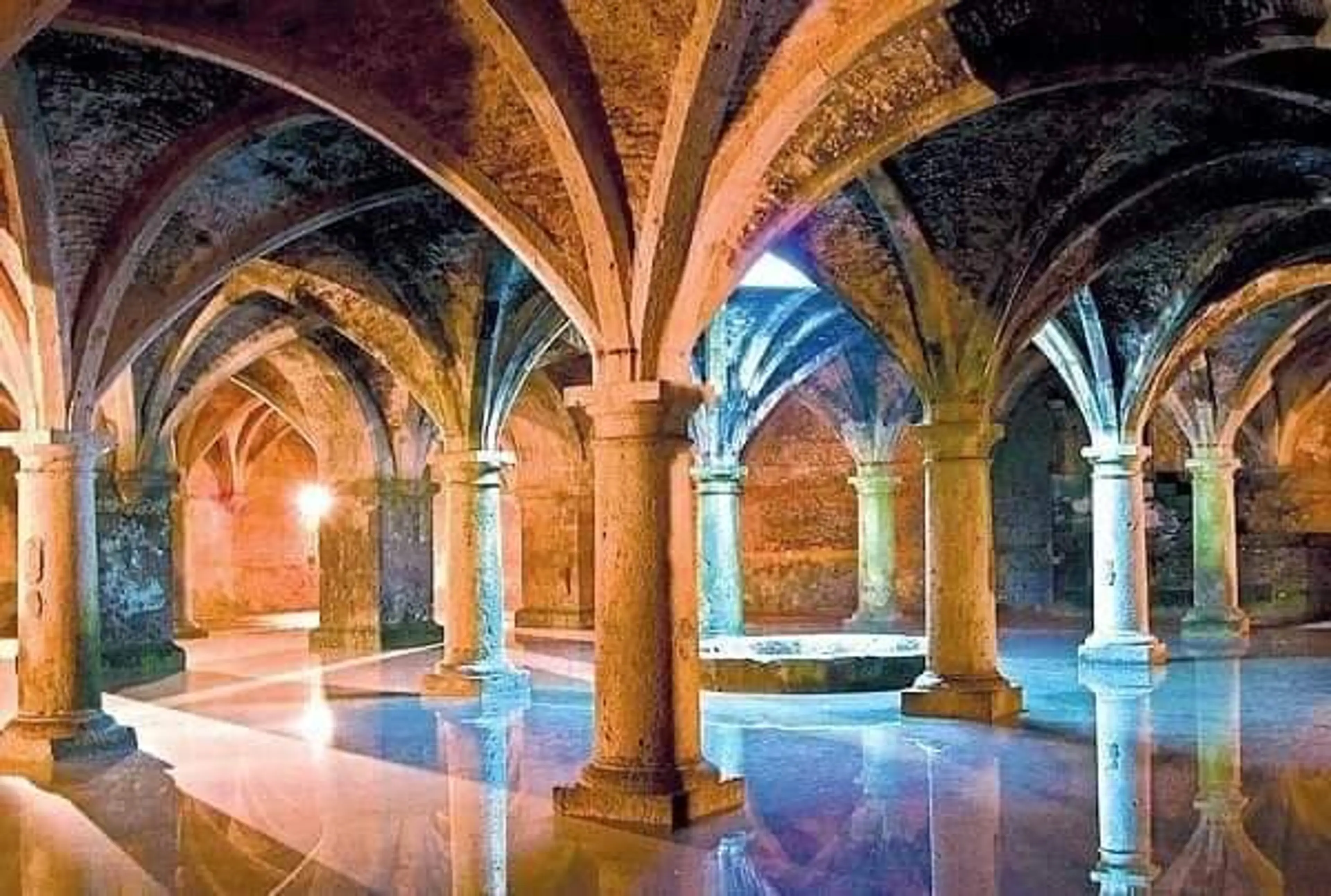
El Jadida
A port city on the Atlantic coast, known for its Portuguese fortified city of Mazagan, now part of the UNESCO World Heritage.
